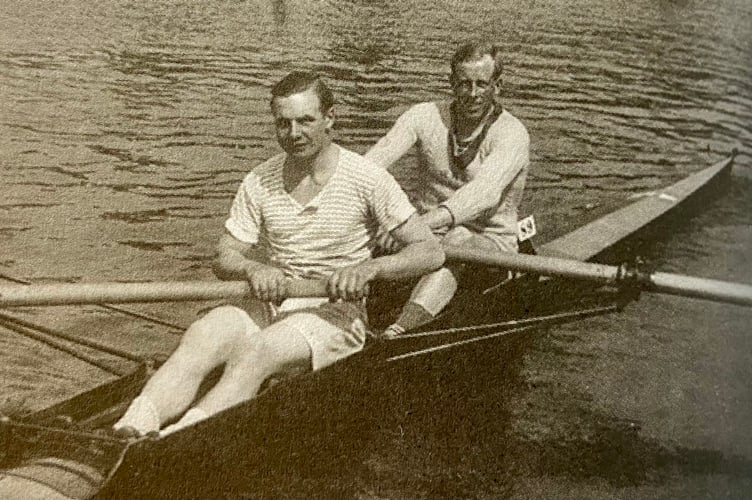TALES of local sporting heroes spring to mind in the midst of the Paris 2024 Olympics.
Sir Harry Llewellyn rode Foxhunter to GB showjumping golden glory at Melbourne in 1952 four years after team bronze at London.
Blaenavon Wales rugby star Ken Jones was also part of the silver medal-winning 100m relay team in 1948, and has recently been immortalised by a statue in his home town.
More recently, Abergavenny's Becky James stormed to two track cycling silvers at the 2016 Games, while equestrian rider Matt Ryan won three golds at the 1992 Barcelona and 2000 Sydney Games, riding for Australia from his Llandewi Rhydderch yard between Raglan and Abergavenny.
But the story of one Games gold medallist will be unknown to most, 92 years after he rowed to glory with a Welsh Sports Hall of Famer.
Lewis Clive, from Wormbridge near Kilpeck, won the men's coxless pairs with Hugh 'Jumbo' Edwards in the 1932 LA Olympics, before the latter jumped into the four as a late sub and won a second title at the same Games – something even Steve Redgrave couldn't achieve.

But within six years, Old Etonian Clive was dead, shot fighting Franco's forces in the Spanish Civil War at 27, just 20 years after his father Percy – former MP for the old Ross constituency – had died fighting in WWI.
The Olympic champion is commemorated on a tablet in Wormbridge’s St Peter and St Thomas Church, his sporting talent and heroism largely forgotten today.
A memorial in the foothills of Spain’s Ebro mountains also pays tribute to him and others who gave their lives for freedom, after it was restored by the local community in 2000.
A two-time Oxford Boat Race Blue alongside Edwards, the duo gelled in the two-man boat winning the Silver Goblets at Henley in 1931 and 1932 to win selection for LA, where the Long Beach course will be used again for the 2028 Olympic regatta.
And having won their heat, they came home a length clear of New Zealand with Poland taking bronze.
Lewis wanted to keep rowing, but Jumbo decided to pursue a flying career in the RAF and they never raced again.
Clive then joined the Grenadier Guards while also devoting his energies to the Labour Party – giving him the nickname the 'Red Blue' – becoming a Metropolitan councillor, joining the Fabian Society and co-founding the National Council for Civil Liberties.
But with fascism spreading, he resigned his commission in 1937 and headed for Spain to join the Republicans’ International Brigade.
As a company commander of the British Battalion, he heroically led his soldiers to repeatedly attack Hill 481, near Gandesa, in the Battle of the Ebro, but was fatally shot on August 3, 1938.
His comrades paid tribute saying: "This big, cheerful, and sincere man had performed his duties as Company Commander with distinction. Well liked and respected in the battalion, this was a great loss to us all.”
The simple stone tablet inside his home church records his bravery, saying: "In memory of Lewis Clive. Born September 8th 1910. Killed at Battle of Ebro, August 4th 1938, Fighting with The Spanish Republican Forces.”
The Times obituary said: "Lewis Clive’s many friends... will not forget his inspiring courage, and will find some consolation in the knowledge that he died gallantly…. in what he was convinced was a critical struggle to save democracy for Spain and ultimately for Europe."
Tragically, his brother Meysey followed his father and brother to an early grave, killed five years later fighting Rommel’s Africa Korps in North Africa.
Another tribute to Lewis was erected in 2017 in Oxford, immortalising him and five others with local connections who died fighting for the Republicans.
And his former girlfriend – the novelist Mary Wesley – also recalled him in her novel The Camomile Lawn, basing idealistic Oliver Ansty on him.
In 1997, she discovered a packet of love letters from Clive, and "felt a terrible pang”, saying “I have barely thought of him for years but seeing that writing brought him back".




